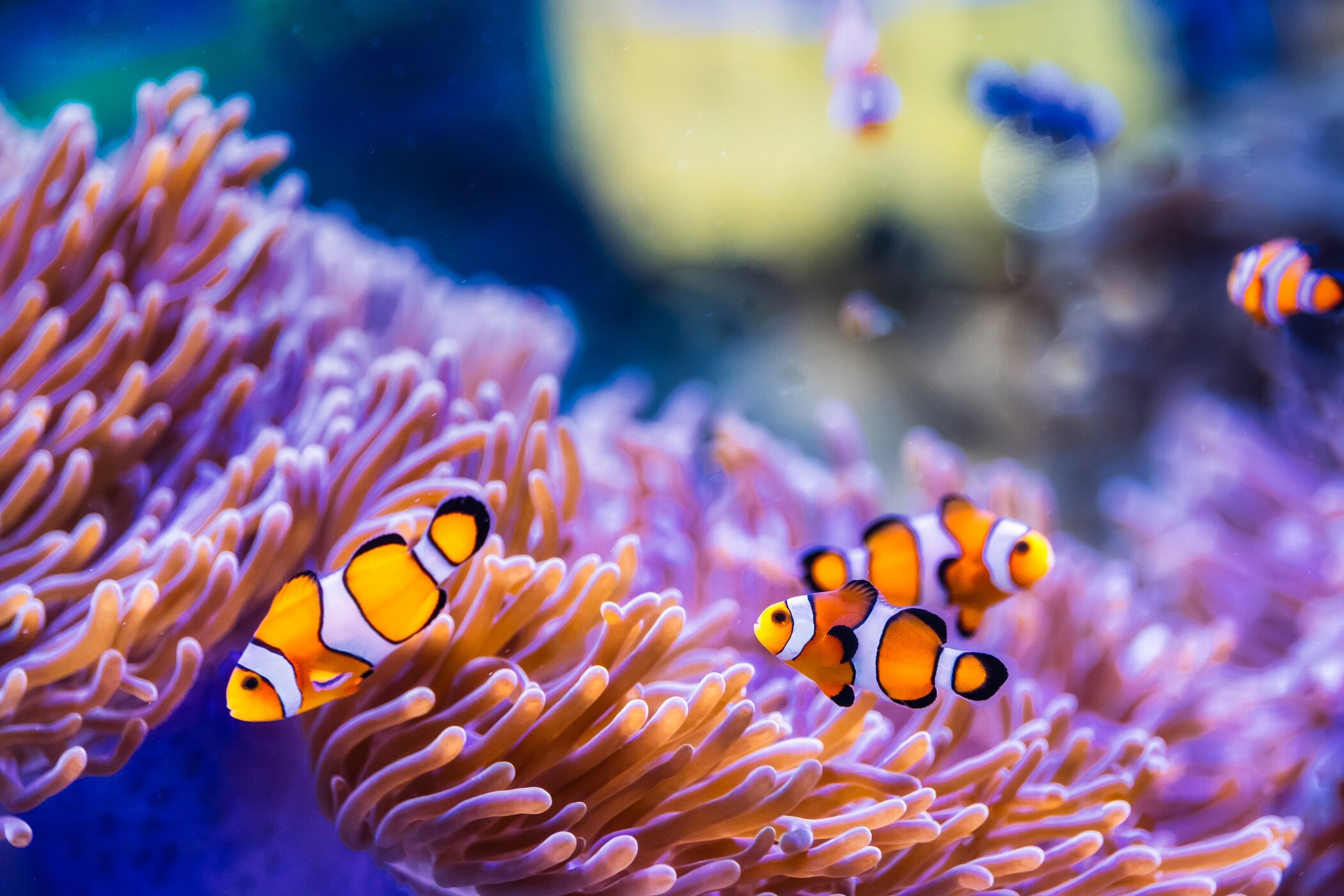Saturn is home to more than 60 moons – from the massive Titan and the crater-riddled Phoebe, to Enceladus with its geysers. Enceladus in particular has been put forward as a good candidate for harbouring microbial life, thanks to its warm internal ocean.
How the Grand Canyon changed our ideas of natural beauty
Nature’s cheats: how animals and plants trick and deceive
As night closes in across Kentucky a small chubby spider makes a silk line between two plants. She then moves along her “trapeze wire” and waits. After a while a moth approaches within range, and the spider unleashes a swinging sticky ball, ensnaring the moth and pulling him in to be eaten. The attacker is a bolas spider, and she hunts by releasing an odour that precisely matches the chemical composition of female moth mating pheromones. The male moth is lured in, but instead of getting a mate, he gets eaten.
How climate change killed the dinosaurs' underwater cousins
Could humans hibernate?
On cold, dark days it is tempting to imagine shutting yourself away until the warmer weather returns. Many animals do just that by entering a state known as torpor, which reduces their bodily functions to a minimum and uses fat stores in their body for energy. Could humans ever hibernate in the same way?
Ten myths about smoking that will not die
What makes us conscious?
Do you think that the machine you are reading this story on, right now, has a feeling of “what it is like” to be in its state? What about a pet dog? Does it have a sense of what it’s like to be in its state? It may pine for attention, and appear to have a unique subjective experience, but what separates the two cases?
Broccoli ingredient has positive influence on drug efficacy
Colon cancer cells that are pretreated with an ingredient found in cruciferous vegetables are more likely to be killed by a cancer drug that is currently in development, found ETH scientists. This is one of only a few examples of a food ingredient that, in moderate amounts, has a positive influence on the efficacy of a cancer drug.
Remember: a bad memory is actually good for you
It’s not uncommon to hear people wishing that they had a better memory. “If only I weren’t so forgetful”, they complain. “If only I could reliably remember my computer password, and that my neighbour’s name is Sarah, not Sandra.” If this sounds familiar then I know how you feel. As a psychologist who studies the science of remembering, it’s especially embarrassing to me that my memory is frequently dreadful. When asked whether I had a good weekend, I often struggle to immediately recollect enough details to provide an answer.
Health Check: five ways to get a better night’s sleep
We devote around seven to eight hours to sleep each night in adulthood and ten to 12 hours in childhood. This amounts to around 200,000 hours in our first 60 years of life. Not getting enough sleep does a disservice to our brain and physical health. But how can we improve our chances of getting a good night’s rest?
Why ‘7’ is the luckiest number
Football teams have been wearing numbers since Arsenal experimented with putting their players in numbered shirts in 1928 (it didn’t bring them much luck – they lost 3-2 to Sheffield Wednesday). But it was Manchester United that made the number seven shirt iconic by putting their best players in it – perhaps most famously David Beckham
Wake up sleepy head: why we fall asleep when we don’t want to
The world’s biggest source of freshwater is beneath your feet
Research Check: does eating chocolate improve your brain function?
Should you eat breakfast?
In the middle of the last century, popular nutrition author Adelle Davis advised people to eat breakfast like a king, lunch like a prince, and dinner like a pauper. Her advice stuck. Recent examination of the merits of adults eating breakfast has raised the question of whether we should indeed eat like kings at breakfast or just skip it all together.
Do fish have feelings? Maybe…
The question of whether animals other than humans can think and feel has been debated for centuries. Most of us would agree that humans have a level of consciousness, loosely defined as an ability to experience thoughts and emotions. But which other creatures have consciousness remains an open and controversial question.
The five greatest balls of fire over Earth
We live on a moving target in a cosmic firing range. Each day, the Earth is bombarded by about a hundred tonnes of space debris. It may sound alarming, but this is really nothing to worry about. Most of the objects that fall towards our planet are pretty small – typically about the size of a grain of sand or even smaller – and burn up in the upper atmosphere tens of kilometres above the ground.
Here’s how we could build a colony on an alien world
How to build a time machine
Every now and again, we all indulge in dreams about travelling in time. Wouldn’t it be wonderful to return to that specific point in the past to change a bad decision or relive an experience – those halcyon days of childhood, that night you won an Oscar – or to zip ahead to see how things turn out in the far future.















